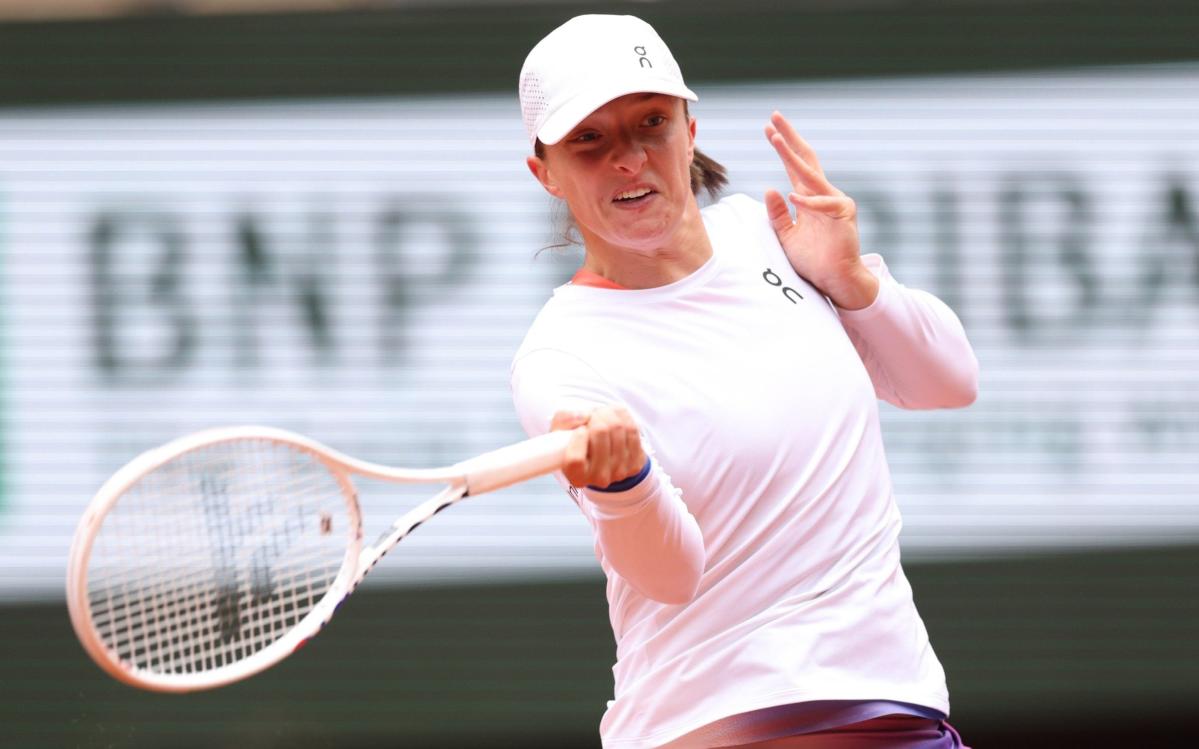Sports
Iga Swiatek’s 40-minute demolition job the quickest French Open match since 1998 final

Not long after Novak Djokovic had battled for four-and-half hours to reach the fourth round, his fellow world No1 Iga Swiatek opened Sunday’s schedule by handing a 6-0, 6-0 double bagel to Anastasia Potapova.
Occupying only 40 minutes, this was the shortest match of Swiatek’s career – and also the shortest at Roland Garros for 26 years.
To find a quicker finish, you have to go back to Steffi Graf, who needed only 32 minutes to demolish Natasha Zvereva by the same scoreline. That match, remarkably, was the 1998 French Open final.
From the moment Swiatek completed her first service game with an ace, she had Russia’s Potapova – who is ranked No 43 in the world – scrambling around in all directions.
Swiatek dropped only ten points in the entire match, and it was hard to remember many Potapova groundstrokes that even found the court, let alone placed her under pressure. Whole games went past consisting of one- or two-shot rallies.
As the debate goes on over the French Tennis Federation’s reluctance to schedule women’s matches in the night slot on Court Philippe Chatrier, tournament director Amelie Mauresmo might be tempted to point at the Swiatek-Potapova non-contest and say: “This is why we don’t do that.”
Swiatek is building a similar clay-court aura to the one Rafael Nadal used to have. On the show courts of Roland Garros, he used to feel as intimidating as the ogre under the bridge.
When a player like Swiatek has an answer to every shot, and can track almost any ball down, her opponents tend to feel under pressure to go for over-ambitious winners. This may partly explain Potapova’s 19 unforced errors and shoddy statistics on serve, where she landed only 39 per cent of her first deliveries.
When Swiatek spoke to the media after the match, she revealed that she and Potapova – who were born two months apart in the spring of 2001 – had often come up against each other during their junior careers.
“I had just a thought that times change a little bit,” Swiatek said. “Because I remember she was always the player to beat me. I don’t think I won against her, and I lost some heart-breaking matches.
“Like the semi-final of the Orange Bowl when I had match point, and I lost here when I had a pretty good tournament. We always played against each other, like, European championships or something.
“Honestly, there’s no point in thinking about that. But I had just a thought like that. It lasted two seconds, and then I was focusing on my work because that’s the best thing I can do.”
Swiatek’s ultra-speedy victory was immediately followed by another one-sided women’s match, as world No 3 Coco Gauff crushed Italy’s Elisabetta Cocciaretto by a 6-1, 6-2 scoreline in exactly an hour.
Gauff said that she had been expecting to get out quickly onto the court, having predicted a swift conclusion from Swiatek, although probably not quite as quick as it was. “I figured the match would probably go an hour and 15, an hour at the quickest. I definitely wasn’t expecting 40 minutes. But it didn’t really affect much because I kind of knew. You plan for the fastest-case scenario.”





